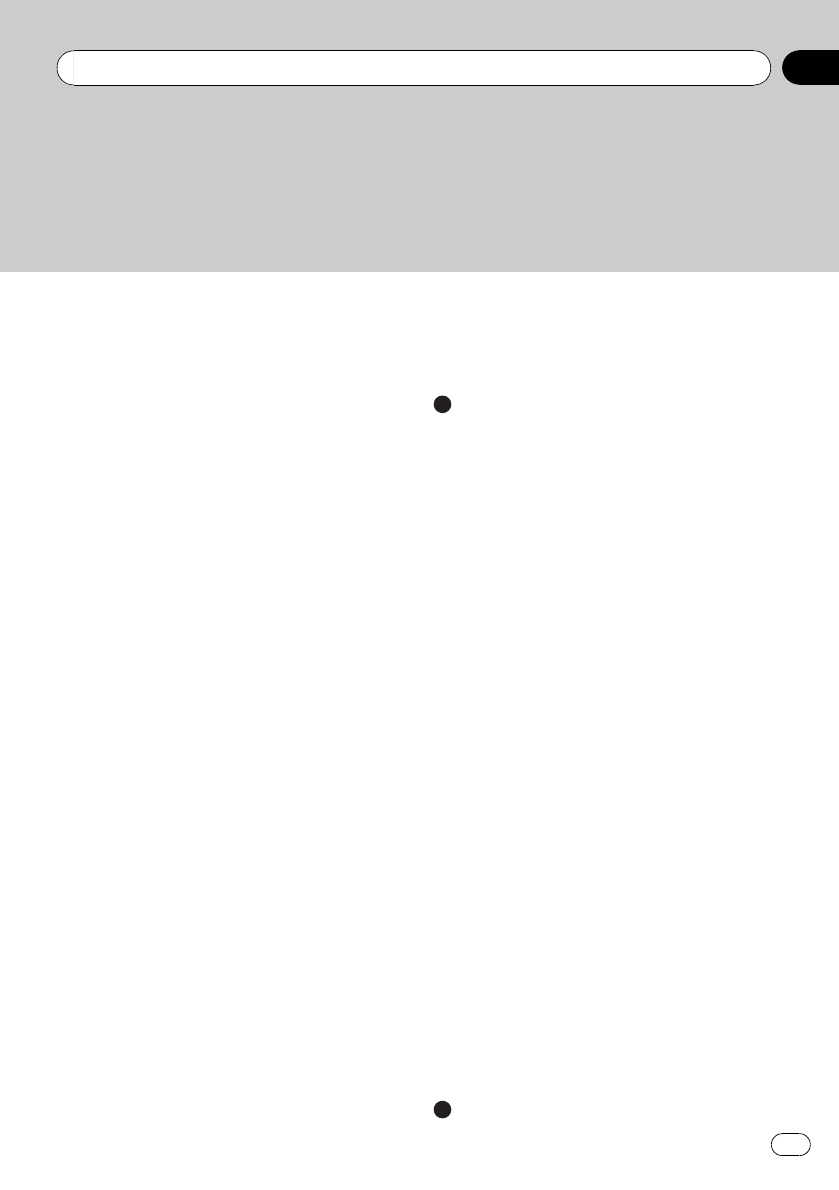
– Displaying BD (Bluetooth Device)
address 65
Multi-CD Player 65
– Basic Operations 65
– Selecting a disc 66
– Pausing CD playback 66
– Introduction of advanced
operations 66
– Using CD TEXT functions 66
DVD Player 67
– Basic Operations 67
– Selecting a disc 67
– Selecting a folder 67
– Pausing disc playback 67
– Introduction of advanced
operations 68
TV tuner 69
– Basic Operations 69
– Storing and recalling broadcast
stations 69
– Storing the strongest broadcast
stations sequentially 69
Digital Signal Processor 70
– Introduction of DSP adjustments 70
– Using the sound field control 71
– Using the position selector 71
– Using balance adjustment 72
– Adjusting source levels 72
– Using the dynamic range control 72
– Using the down-mix function 73
– Using the direct control 73
– Using the Dolby Pro Logic II 73
– Setting the speaker setting 74
– Adjusting the speaker output
levels 75
– Selecting a cross-over frequency 75
– Adjusting the speaker output levels
using a test tone 75
– Using the time alignment 76
– Using the equalizer 77
– Using the auto-equalizer 78
– Auto TA and EQ (auto-time alignment
and auto-equalizing) 78
Additional Information
Troubleshooting 81
Error messages 83
Understanding auto TA and EQ error
messages 85
Handling guideline of discs and player 86
DVD discs 86
DVD-R/DVD-RW discs 86
AVCHD recorded discs 86
CD-R/CD-RW discs 86
Dual Discs 87
Compressed audio files on the disc 87
– Example of a hierarchy 87
– Compressed audio compatibility 88
USB audio player/USB memory 88
– USB audio player/USB memory
compatibility 88
– Handling guideline and supplemental
information 88
– Compressed audio compatibility 89
DivX video files 90
– DivX compatibility 90
About handling the iPod 90
– About iPod settings 90
Using the display correctly 90
– Handling the display 91
– Liquid crystal display (LCD) screen 91
– Keeping the display in good
condition 91
– Small fluorescent tube 91
Language code chart for DVD 92
Terms 93
Specifications 96
Index 98
En
5
Contents


















